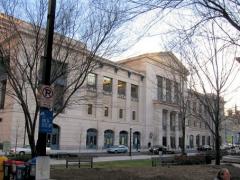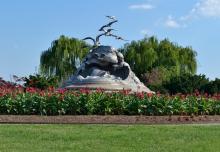 |
Navy – Merchant Marine Memorial
Washington, District Of Columbia |
Located in Lady Bird Johnson Park on Columbia Island, the Navy-Merchant Marine Memorial |
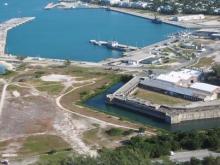 |
Fort Zachary Taylor Historic State Park
Key West, Florida |
Named after 12th president Zachary Taylor, the U. S. |
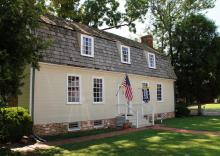 |
Wright’s Chance/Queen Anne’s County Historical Society
Centreville, Maryland |
Dating back to the 1700s, Wright's Chance is a Colonial period plantation house. |
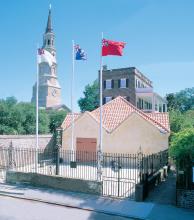 |
The Powder Magazine
Charleston, South Carolina |
Construction began on The Powder Magazine in 1712 and was completed by 1713, making it |
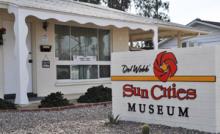 |
Del Webb Sun Cities Museum
Sun City, Arizona |
The Sun Cities Area Historical Society/Del Webb Sun Cities Museum is dedicated to the p |
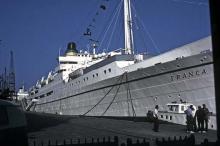 |
Steamship Historical Society of America
East Providence, Rhode Island |
THE STEAMSHIP HISTORICAL SOCIETY OF AMERICA was established in 1935 as a means of bring |
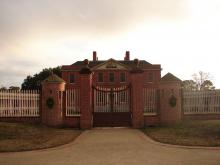 |
Tryon Palace
New Bern, North Carolina |
Tryon Palace is a modern recreation of the original palace, which served as the royal g |
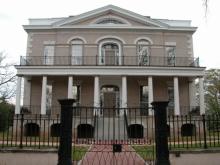 |
Hampton-Preston Mansion & Gardens
Columbia, South Carolina |
One of Columbia's oldest remaining historic houses, the Hampton-Preston Mansion was hom |
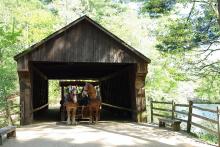 |
Old Sturbridge Village
Sturbridge, Massachusetts |
Old Sturbridge Village is the largest living history museum in New England, spanning o |
 |
Tennessee Civil War National Heritage Area
Murfreesboro, Tennessee |
The Tennessee Civil War National Heritage Area tells the whole story of the Civil War, |
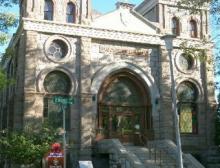 |
Diocese Of Helena
Helena, Montana |
The Vicariate Apostolate of Nebraska was erected for Montana east of the Cascade Mounta |
 |
Presidio Of Monterey Museum
Monterey, California |
Because of the important role of the military in Monterey between 1902 and today, the m |
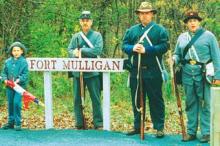 |
Fort Mulligan At Petersburg
Petersburg, West Virginia |
Federal or Confederate troops occupied this hill and its surrounding area beginning at |
 |
Tank Museum
Danville, Virginia |
The Tank Museum has the most extensive collection of International Tank & Cavalry a |
 |
Fort Mifflin On The Delaware
Philadelphia, Pennsylvania |
Originally built in 1771 and continuously used by the U.S. |
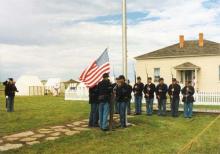 |
Fort Buford
Williston, North Dakota |
Fort Buford was a United States Army base established in 1866 at the confluence of the |
 |
Fort Phil Kearny State Historic Site
Banner, Wyoming |
Visitors are invited to explore the grounds of this famous site. |
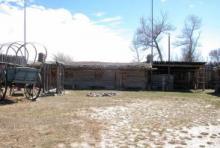 |
Fort Bridger
Fort Bridger, Wyoming |
It was obtained by the Mormons in the early 1850s, and then became a military outpost i |
 |
Bentonville Battlefield
Four Oaks, North Carolina |
In addition to the fiber-optic display, Bentonville's remaining exhibits have received |
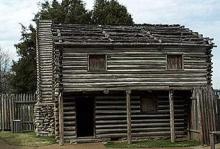 |
Fort Nashborough
Nashville, Tennessee |
John Donelson and James Robertson were both leading settlement parties when they establ |
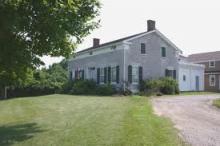 |
Fort Plain Museum & Historical Park
Fort Plain, New York |
A significant fort during the Revolutionary War, Fort Plain in the Mohawk Valley exists |
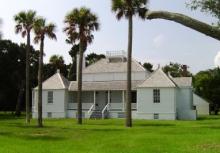 |
Kingsley Plantation
Jacksonville, Florida |
The Kingsley Plantation, administered by the National Park Service, is located on Fort |
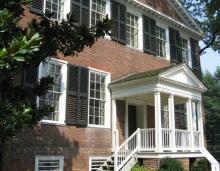 |
John Marshall House
Richmond, Virginia |
This temple-front, four-room plan house with an Adamesque interior has undergone remark |
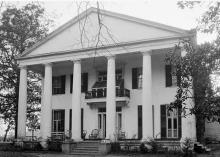 |
Magnolia Grove
Greensboro, Alabama |
Nationally significant as the boyhood home of Spanish-American War hero and U.S. |
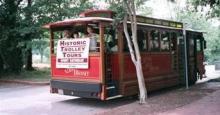 |
Mordecai Historic Park
Raleigh, North Carolina |
While at Mordecai, visitors can tour other historic structures which have been moved to |
 |
Sotterley Plantation
Hollywood, Maryland |
The oldest remaining Tidewater plantation, Sotterley is now a National Historic Landmar |
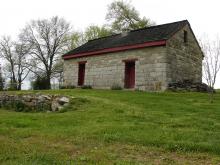 |
Bledsoe's Fort Historic Park
Castalian Springs, Tennessee |
Although the original building is no longer standing, the archaeological remains of Ble |
 |
Ulysses S Grant National Historic Site
St. Louis, Missouri |
|
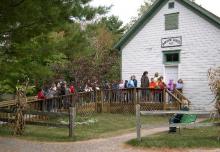 |
White Pine Village
Ludington, Michigan |
Historic White Pine Village opened in 1976 and is an historic village of over twenty-fi |
 |
Chesapeake & Ohio Canal
Washington, District Of Columbia |
In the 19th century the C&O Canal provided jobs and opportunities for people throug |
